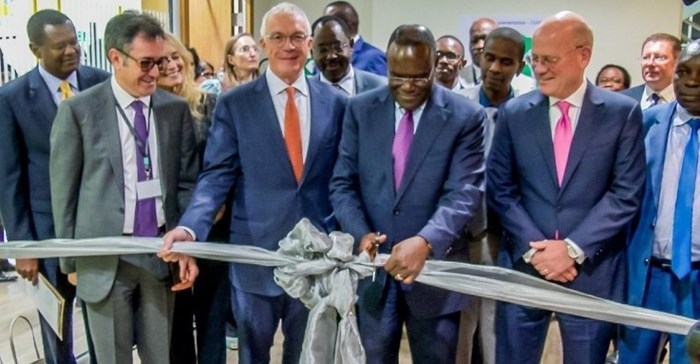Sustainable healthcare in Kenya has received a $13m investment boost with a new skills development facility committed to training 10,000 health professionals by 2020.

L-R: Farid Fezoua, president & CEO: GE Healthcare Africa; Jay Ireland, president & CEO: GE Africa; Dr Cleopa Mailu, cabinet secretary: ministry of health for Kenya and John Flannery, president & CEO of GE Healthcare.
Building on the country’s ongoing $420m health modernisation programme, the GE Healthcare Skills and Training Institute will initially offer clinical applications and technical training courses for healthcare professionals in Kenya and East Africa. Over the longer term, it will be expanded to offer leadership, biomedical and clinical education courses, working with the ministry of health, private healthcare providers and other educational partners.
In February 2015, the ministry of health and GE signed a contract in response to Kenya’s managed equipment services plan, which includes a four-pillar solution being provided by GE: an adapted technology approach covering wide-scale radiology modernisation with e-health capabilities; a sustainable service and maintenance programme; a commitment to localised skills development and capacity building and a structured financing solution that is enabling the ministry to sustainably fund its long-term healthcare transformation.
Modernisation shows increased access to healthcare
An assessment of the impact of government’s radiology modernisation initiative has shown positive early trends with increased system efficiency, reduced patient waiting times and increased throughput, as well as:
- An increase in examination volume post implementation from about 1,500 monthly digital exams to over 28,800 monthly digital exams across the first 44 hospitals.
- Improved workflow efficiency has shown a preliminary 14% reduction in average scan time from analogue to digital.
- A +50% improvement in access to radiology services across three pilot hospitals in the first five months’ post installation of the new equipment.
- Reliable and continuous radiology services with response and rectification time ensuring operation of the equipment for more than 95% of the time.
- The latest digital mammography capability has been installed at 90% of level 5 hospital, enabling 30% of these facilities to offer in-house mammography exams for the first-time.
Farid Fezoua, president and CEO, GE Healthcare Africa says: “The new centre will not only help to ensure that Kenya’s healthcare workforce receives critical training to optimise the full features and benefits of country’s newest healthcare equipment, it will also support a pipeline of future biomedical engineers, radiologists and technicians. This commitment to healthcare capacity building will help to reduce the country’s skills gap, improve job prospects and build a solid national healthcare system and private healthcare sector.”
“To date, radiology departments at 70 modernised hospitals are delivering services to patients in 42 of the 47 counties. Work is well underway in the remaining 28 hospitals. While data that assesses the long-term impact of the programme will take some time to be compiled and analysed, the early results are positive.” says Dr Cleopa Mailu, cabinet secretary, ministry of health.



































